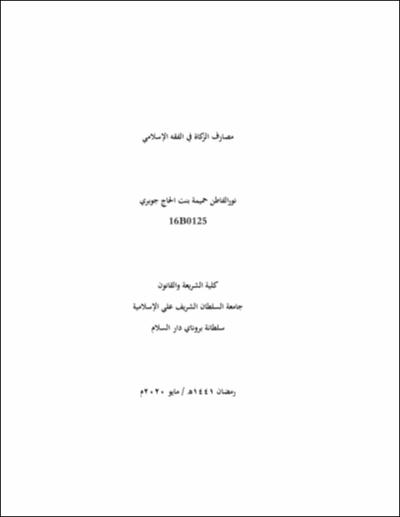مصارف الزكاة في الفقه الإسلامي

Date
2020Author
Nurul Fatin Hamimah binti Haji Jubri
Abstract
The practice of zakat is compulsory and is required of every Muslim, this is because zakat is one of the rules of the Islamic pillars. This writing raises about who is eligible for zakat. In Islam it has been explained that only certain group of people are entitled to receive zakat on the conditions that make them eligible to receive it. In Chapter One, the author will elaborate on the purpose of zakat with dalil (statement) in accordance to Al-Quran, Hadith and the ‘ijmak’ point of view about zakat, besides that there are also the advantages and wisdom of performing zakat. While in Chapter Two, the author talks about the types of zakat which is Zakat of Property and Zakat Al-Fitrah. In Chapter Three, the author discusses about the asnaf found in the Al-Quran, as well as the view of the four sects on zakat. Some of the positive effects of performing zakat also have been raised in this last chapter as an incentive and a warning to individuals and society to not forget and not neglect to perform zakat.
Collections
Alternative Title
Zakat Channel in Fiqh Islam

